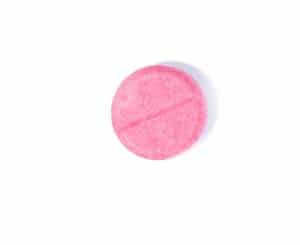Indian Company Under Fire Again for Warfarin Drug Recall
 Sun Pharmaceuticals has been closely scrutinized by the Food and Drug Administration recently for problems with generic drugs leading to drug recalls in the US. The company, along with other generic drug manufacturers in India, met with FDA head Margaret A. Hamburg in February of this year to investigate the root of problems with their generic drugs, but her visit did little to improve quality control in the overseas pharmaceutical companies.
Sun Pharmaceuticals has been closely scrutinized by the Food and Drug Administration recently for problems with generic drugs leading to drug recalls in the US. The company, along with other generic drug manufacturers in India, met with FDA head Margaret A. Hamburg in February of this year to investigate the root of problems with their generic drugs, but her visit did little to improve quality control in the overseas pharmaceutical companies.
Now, Sun Pharmaceutcals’ US subsidiary, Taro, has issued a Warfarin drug recall for Warfarin Sodium, the company’s leading anti-coagulant.
This is the third quality-control drug recall that Sun Pharmaceuticals has undergone this year. Although this number seems alarming at first, the drug recalls could actually be good news for quality improvement – the pharmaceutical manufacturer received a warning letter this year regarding its facility in Gujarat, and since then seems to have stepped up quality control operations, which includes more drug recalls.
Other India-based pharmaceutical companies have faced much tougher scrutiny. Manufacturers Ranbaxy Laboratories and Wockhardt Ltd were both banned from selling prescription generic drugs in the US after federal inspectors found the companies had retested drugs’ efficacy to gain favorable results. Ranbaxy even faced charges from the US Department of Justice related to quality problems with its generic drugs.
Taro issued the Warfarin drug recall for its warfarin blood thinner on September 2nd, citing failed uniformity specifications.
The Warfarin drug recall falls under Class II, according to the FDA, because using the drugs or exposure to the drugs can lead to temporary or medically reversible adverse health consequences, or that the probability of long-term health consequences is remote.
For years, the FDA did not have authority to regulate generic drug manufactures due to a legal tie-in with brand name counterparts. However, in 2012, the FDA was granted the power to collect fees for problems with generic drugs from their manufacturers – and in November of last year, the FDA proposed a rule to allow generic drug manufacturers to change their labels to reflect side effects that brand name drugs did not have to list. In June 2013, the Supreme Court upheld a 2011 decision that generic drug manufacturers were not liable for personal injury caused by their products, because generic drug companies must legally have the same safety labels as their brand-name counterparts. If a patient ends up with a personal injury due to safety problems with a drug they have been prescribed, they can sue the brand name manufacturer, but they cannot sue the generic drug company for misinformation about safety. Brand name companies, also, are able to independently update their safety and warning information, while generic drug companies have had to wait until new information about the original drug was released.
The Strom Law Firm Helps with Personal Injury Cases Related to Brand or Generic Drug Recalls
If you have been harmed, or a loved one has been harmed or killed by a defective product or drug, whether brand name or generic, the attorneys at the Strom Law Firm can help. You may be entitled to compensation through a personal injury lawsuit. We offer free, confidential consultations to discuss the facts of your case, so contact us today. 803.252.4800.

